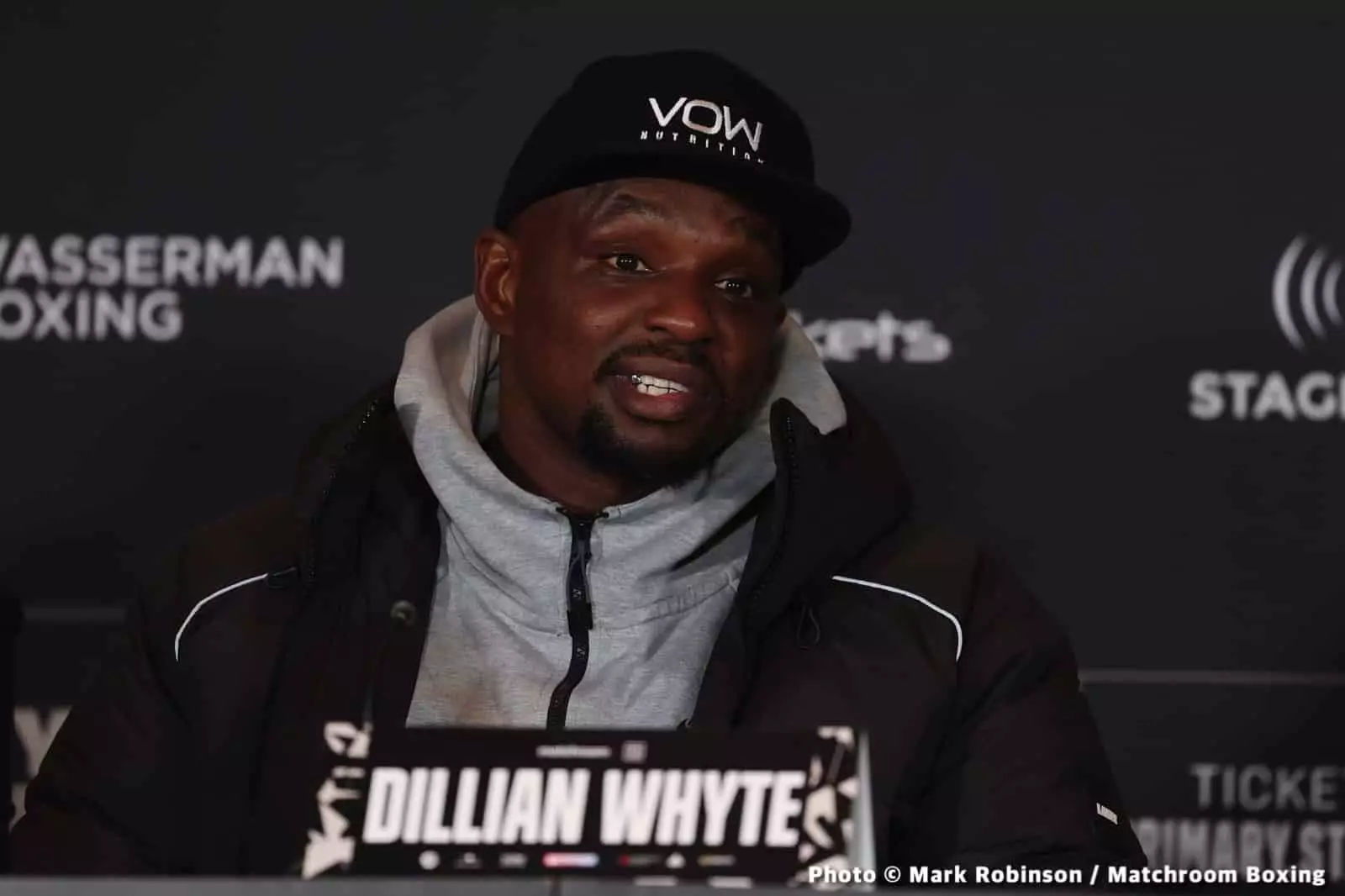In the world of heavyweight boxing, defeat can often feel like a finality, but Dillian Whyte challenges this narrative. As a former world title contender, Whyte emphasizes the importance of resilience, arguing that setbacks do not define a fighter’s career. His recent statements regarding Anthony Joshua, another prominent heavyweight who has faced challenges in the ring, provide an insightful perspective that many in the boxing community could benefit from.
Whyte’s stance, articulated during an interview with Sky Sports, insists that Joshua should continue his boxing journey despite recent setbacks. He believes that the wrestling match of heavyweight boxing should not hinge on a single loss. Whyte contends that Joshua still possesses the skills and physicality needed to compete at the highest levels. The way Whyte describes Joshua’s abilities reveals confidence not only in Joshua’s future performances but also in the overall health of heavyweight boxing. According to Whyte, “He’s still got a lot left in the tank,” which underscores the notion that even powerful athletes can endure losses while still retaining their prowess.
Furthermore, Whyte highlights a larger issue within the boxing community—the inclination to call for immediate retirements after losses. This mentality, he argues, detracts from the sport itself by stifling opportunities for major fights. Whyte advocates rather for an appreciation of the matchups that heavyweight boxing currently offers, suggesting that the focus should shift toward celebrating competitive bouts, rather than fixating on individual outcomes.
The Bigger Picture of Heavyweight Boxing
The heavyweight division today boasts a rich tapestry of fighting talent. Whyte points to prominent undefeated fighters emerging, such as Agit Kabayel and Frank Sanchez, indicating that the competitive landscape is more vibrant than ever. These rising stars represent not only the present but also the future of heavyweight boxing, encouraging established figures like Joshua and Whyte to demonstrate their worth in the ring rather than succumb to pressures of defeat.
Yet, there lingers the question of motivation behind Whyte’s encouragement for Joshua to continue. Could it be that he harbors aspirations for a lucrative rematch? Surely, Whyte’s career would be revitalized by a fight against a past rival, particularly one with Joshua’s drawing power. However, the bigger picture rests on mutual growth and resurgence within the heavyweight category as a whole.
As Whyte prepares for his upcoming fight against Ebenezer Tetteh in Gibraltar, he is keenly aware of the importance of rebuilding his own image and career. The heavyweight landscape is unforgiving, yet laden with opportunities for those willing to face their challenges head-on. His comments about Joshua serve as a reminder that the essence of boxing lies not in the fear of falling but rather the determination to rise with newfound strength.
Ultimately, Whyte’s insights reflect a broader call for resilience and persistence in a sport that thrives on dramatic narratives. As heavyweight boxing continues to evolve, understanding the pathways back from adversity will be critical—not only for individual fighters like Joshua and Whyte but for the future of the division itself.


Leave a Reply